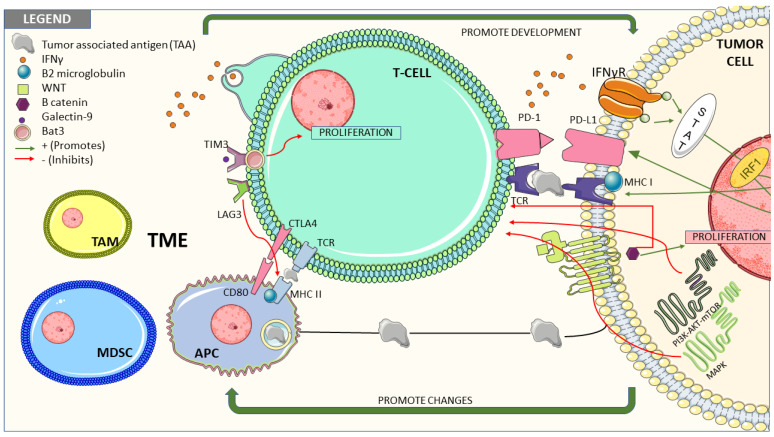Figure 2.
Among the key mechanisms described we can mainly distinguish tumor-intrinsic factors and factors associated to tumor microenvironment (TME). In the first subgroup it is important to outline the alterations of antitumor immune response pathways (e.g., aberrant expression of tumor antigens), variations in the antigen presentation pathways (e.g., β2-microglobulin mutations leading to loss of MHC) or defective signaling pathways (e.g., IFNγ-STAT-IRF1 signaling pathway); What is more, these intrinsic factors promote the formation of an immunosuppressive microenvironment through the mutations of functional genes such as Wnt/β-catenin, MAPK, or PI3K-AKT-mTOR pathways and the modifications of the metabolism of TME (e.g., hypoxic conditions); The second subgroup (factors associated to TME) includes the presence of immunosuppressive cells (e.g., MDSCs or TAM) as well as the activation of coinhibitory receptors (e.g., TIM-3, LAG-3).

